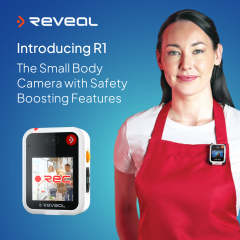Too many retailers missing out on fully benefiting from click & collect
Retailers like Matalan who have invested in implementing RFID technology are benefiting massively from the rise of click & collect where volumes have been boosted dramatically by the impact of Covid-19.
By Glynn Davis at Retail’s Big Show in New York
The technology gives retailers massively enhanced visibility over their inventory, which enables them to fulfil from stores – both for click & collect and also by delivering them from stores to customers’ homes.
Speaking at Retail’s Big Show, organised by the NRF, Dean Frew, CTO of SML Group – that works with the likes of Tesco and Stadium along with Matalan, says: “There is a realisation by many retailers that they have an inventory problem. When customers buy online they expect to be able to go to the store within a few hours to collect. But with inventory accuracy for clothing and footwear at 65/60%, and in some cases as low as 50%, retailers simply don’t know where the right items are in the supply chain.”
Never Miss a Retail Update!This can often lead to the cancellation of customer orders and refunds being issued when the items cannot be found. “This is the fundamental business case for RFID. Buying online for collection in-store has driven the conversations [we have] with retailers about the technology. When online went crazy with Covid they realised they could not just use warehouses for [fulfilling] online orders. They needed to be able to use their stores,” explains Frew.
With up to 90% of their stock sitting in stores for many retailers the inability to efficiently and confidently use these goods for fulfilling online orders is a problem because there is a growing recognition that the future of stores involves them also being used as mini-fulfilment centres.
Despite the benefits of RFID Frew says there is still the mindset among many retailers to continue operating two separate businesses – online and shops. “They need to have the courage to do something different – to move from SKU to item level capabilities. When they now see Inditex, Tesco and H&M doing it then more retailers will recognise they will also need to do it.”
Once the RFID tags and relevant systems to manage them have been brought in then Frew says the technology can be leveraged for other benefits beyond helping click & collect. This includes enhancing the ability to handle returns. RFID makes it easier to bring returned products back into a retailer’s supply chain and therefore enhance the margin opportunity by increasing the prospects of reselling the items. And enhancing the chances of doing so at full price.













